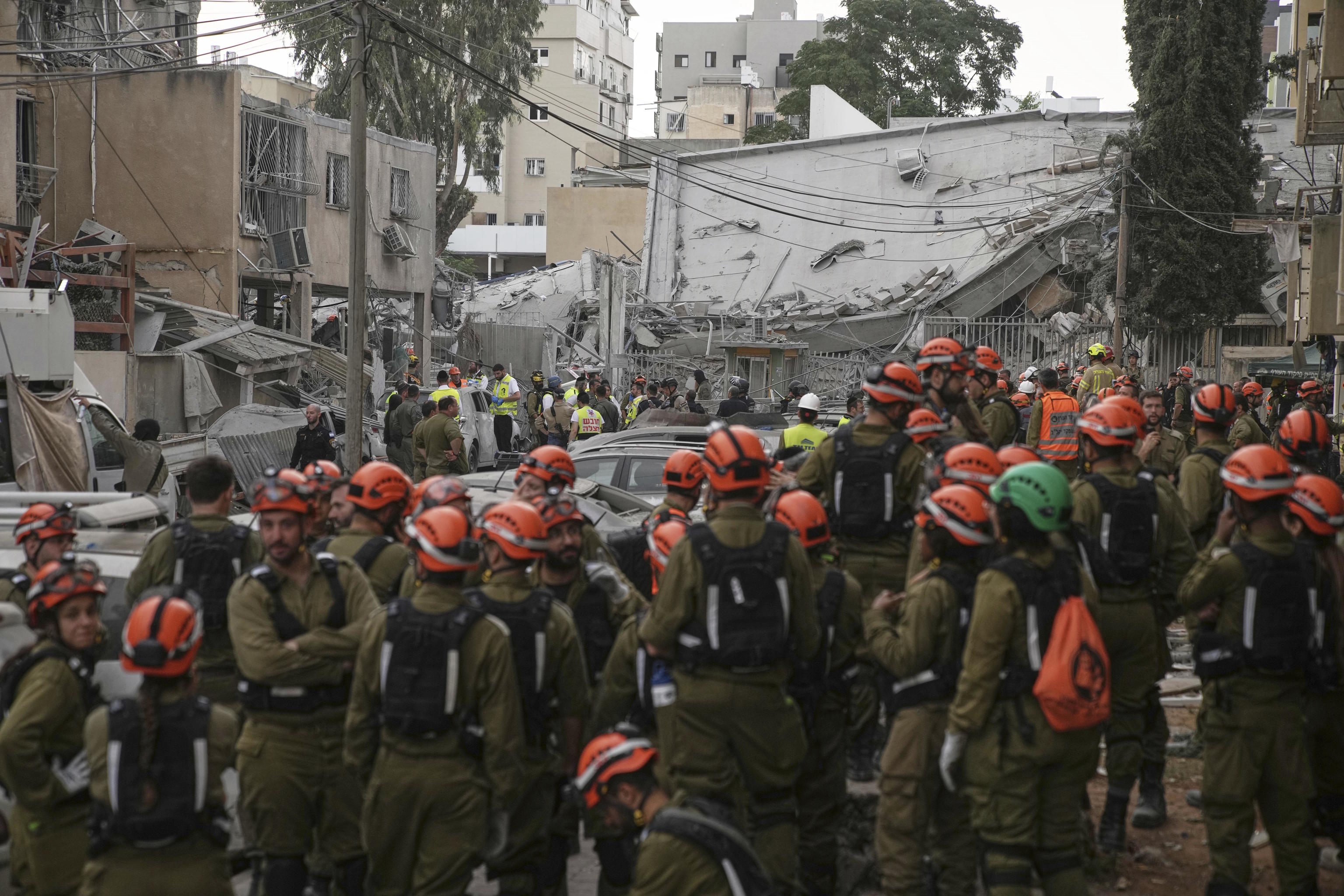New night of attacks between Iran and Israel amid a new exchange of threats between the authorities of both countries that show no signs of the conflict easing.
The Iranian parliament is preparing a bill to withdraw from the Nuclear Non-Proliferation Treaty (NPT), an international cooperation pact to curb the spread of nuclear technology.
The Islamic Republic announced that it had launched about 100 missiles overnight, leaving eight dead and a hundred injured in several Israeli cities.
Israeli Defense Minister, Israel Katz, stated that the residents of Tehran "will pay the price and soon" for these attacks, a statement he later wanted to clarify. "I would like to clarify the obvious: there is no intention to physically harm the residents of Tehran... They will be forced to evacuate their homes from areas where it will be necessary to target regime objectives and security infrastructure in Tehran," Katz pointed out.
Meanwhile, the Israeli Army said on Monday that it has already destroyed more than 120 Iranian missile launchers, a third of the total. Additionally, they have killed two more members of the Revolutionary Guard. Israeli attacks have left at least 224 dead and 1,257 injured throughout the country, most of them civilians.
On the other hand, Iranian President, Masud Pezeshkian, urged all citizens to set aside their differences and unite against Israel.
The Commission says the conflict has no impact on EU energy security
The European Commission stated on Monday that the increased instability in the Middle East and oil market volatility do not currently pose a risk to the energy security of the European Union (EU).
"It does not have an impact on the energy security of the EU, for now," said the Energy spokesperson of the European Commission, Anna-Kaisa Itkonen, during a press conference.
The Commission assured that member states are "well-prepared for any disruption with EU oil reserves, which are in line with our requirement, which is 90 days of reserves."
"We are not importing oil from Iran. Obviously, it is a situation that we are following very, very closely (...). We do not comment on markets, we do not comment on prices, but obviously we are closely monitoring the situation," Itkonen added.
Russia willing to mediate and accept Iranian uranium
Russia remains willing to act as a mediator in the conflict between Israel and Iran, and Moscow's previous proposal to store Iranian uranium on Russian soil remains valid, the Kremlin said on Monday.
Tehran claims it has the right to nuclear energy for peaceful purposes, but its rapidly advancing uranium enrichment program has raised concerns in the West and the Persian Gulf that it seeks to develop a nuclear weapon.
Russia previously proposed taking enriched uranium from Iran and converting it into fuel for civilian reactors as a possible way to calm the crisis. "This proposal remains on the table, it remains relevant. But, of course, with the outbreak of hostilities, the situation has seriously complicated," said Kremlin spokesperson Dmitry Peskov.
Russia, Peskov said, remains willing to mediate if necessary, but noted that the root causes of the conflict must be addressed and eliminated, warning that military attacks are escalating the crisis to extremely serious levels.
